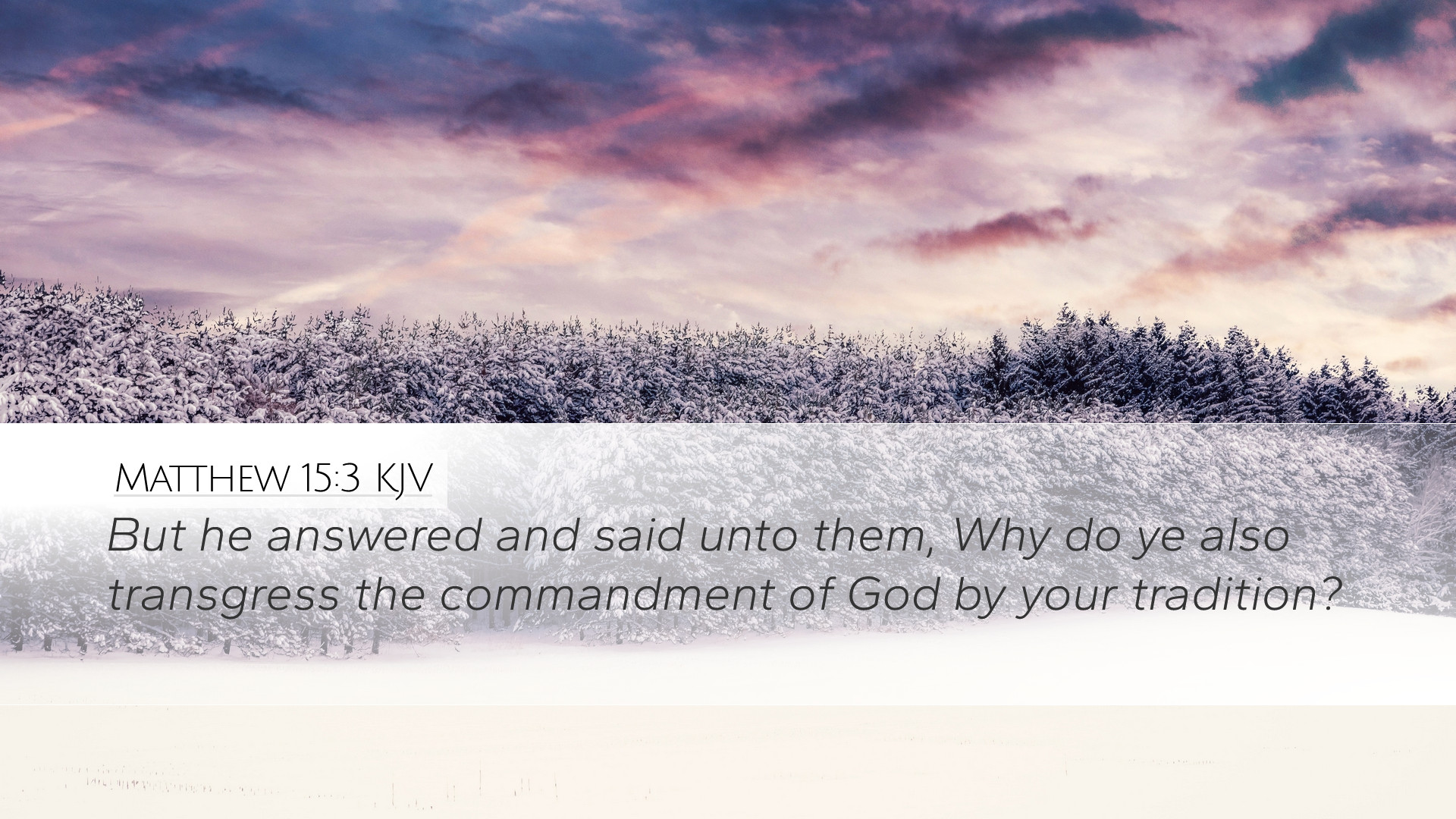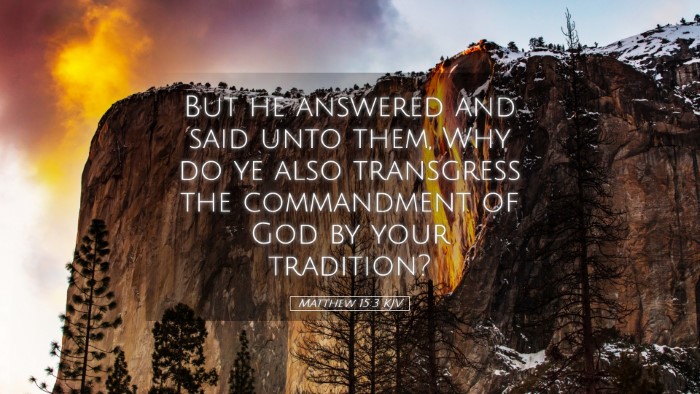Commentary on Matthew 15:3
Text of the Verse: "But he answered and said unto them, Why do ye also transgress the commandment of God by your tradition?"
Introduction
This verse captures a significant moment in Jesus’ ministry where He confronts the Pharisees and teachers of the law concerning their adherence to traditions over the commandments of God. In analyzing this verse, we can gain insights from esteemed public domain commentaries that shed light on its meaning and implications for faith practice.
Contextual Background
The surrounding context involves a confrontation between Jesus and the religious leaders regarding the ceremonial washing of hands before eating (Matthew 15:1-2). Jesus' response underscores a fundamental issue of authority—namely, whether human traditions should supersede divine commandments.
Insights from Matthew Henry
Matthew Henry emphasizes that this verse illustrates the conflict between human expectations and God’s commandments. He asserts that traditions, when placed above God’s law, pervert the true intent of worship and obedience.
- Pharisaical Traditions: Henry notes that the Pharisees imposed their traditions as a means of righteousness, thus neglecting the heart of the law.
- The Nature of Transgression: He highlights that transgression occurs not merely in overt acts but also in elevating man-made rules above God's directives.
Insights from Albert Barnes
Albert Barnes provides a more detailed explanation regarding the term "tradition." He notes that the traditions referred to are not necessarily evil in themselves; however, when they lead individuals away from the core principles of God's commandments, they become detrimental.
- Importance of Heart-Centered Obedience: Barnes argues that while traditions may have their place, the essence of worship resides in a heart surrendered to God’s will, as indicated in Matthew 15:8-9.
- Authority of God's Commandments: He stresses that Jesus redirected the focus from the typical religious practices to understanding the weightier matters of the law—justice, mercy, and faith.
Insights from Adam Clarke
Adam Clarke takes an exegetical approach in his commentary on this verse. He suggests that the traditions of the elders represented a larger system of beliefs that often led to a misunderstanding of God's intentions.
- Historical Context: Clarke provides context on the historical development of Jewish traditions and their evolution from practical guidance to legalistic requirements.
- Christ's Authority: He points out that Jesus, by questioning the motivations behind the traditions, asserts His authority and invites His followers to examine their own practices critically.
Theological Implications
This encounter raises important theological questions about the relationship between tradition and scripture. It compels theologians and church leaders to evaluate their practices and teachings within their congregations.
- Evaluating Practices: This verse encourages a critical evaluation of church practices, ensuring they align with biblical truth rather than mere tradition.
- Core Commandments: It highlights the necessity of emphasizing God’s commandments as the foundation for faith and morality.
Practical Applications for Pastors and Leaders
For pastors and church leaders, this passage serves as a caution against becoming enmeshed in tradition to the detriment of spiritual health. Here are some practical applications:
- Fostering Authentic Worship: Leaders are encouraged to cultivate an environment where hearts are directed toward God, rather than merely following established rituals.
- Teaching the Whole Counsel of God: It is vital to teach scripture comprehensively, ensuring that congregants understand the weightier matters of the law that Jesus emphasized.
Conclusion
Matthew 15:3 is a profound statement about the tension between tradition and divine authority. The insights from Matthew Henry, Albert Barnes, and Adam Clarke provide a rich tapestry for understanding this dynamic. For pastors, students, and theologians, the call is clear: to prioritize God’s commandments over human traditions, ensuring that worship and practice are rooted in genuine faith and obedience.


